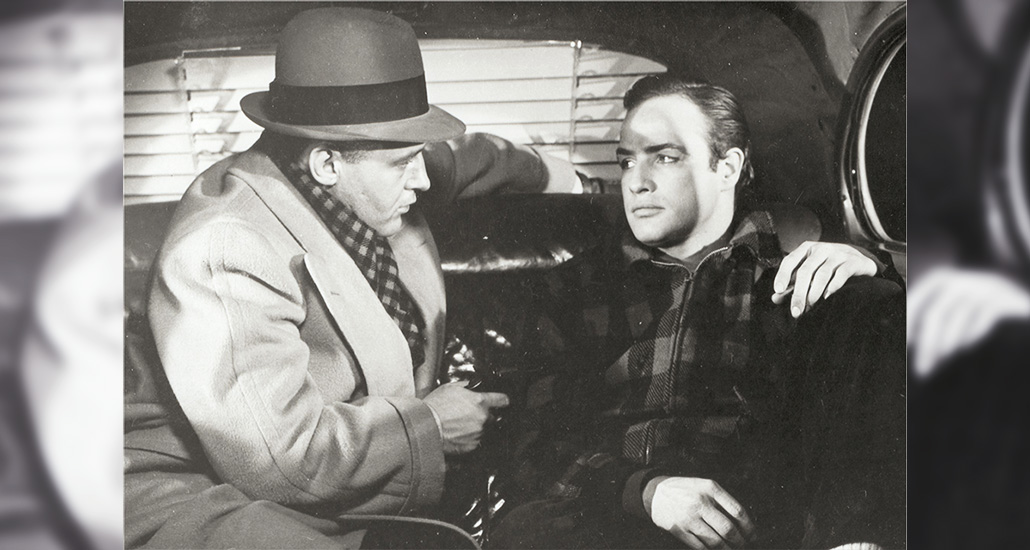by Michael A. Hoey, ACE
Film has been a part of my life almost from the very beginning. My father was an actor and I would sometimes accompany him to the studios to watch as he performed in front of the cameras. My first exposure to filmmaking was at Universal Studios in the mid- 1940s, where he was appearing as Inspector Lestrade in the Sherlock Holmes series of films starring Basil Rathbone and Nigel Bruce. I can’t describe the excitement I felt as I stood on the set and watched a scene being filmed. I knew even then that I wanted to be a part of this magical experience.
When I’d reached my teens, movies had transitioned from the big-budgeted dramas that were more fantasy than reality and were taking on the problems of the times and dealing with them in realistic ways. Films were getting out of the studios and telling their stories on actual locations. A new breed of actors, writers and directors was arriving on the scene. At the time, I had aspirations of becoming an actor myself and when I first saw Marlon Brando in The Men, I meticulously studied his performance. Then his mesmerizing role as Stanley Kowalski in A Streetcar Named Desire came along and absolutely knocked me out. Even so, I was keenly aware of director Elia Kazan’s visual style and the way he filled a frame and continued to value Kazan’s work with Brando on Viva Zapata.
I have probably seen On the Waterfront a dozen or more times and still find new discoveries in it. It has become a watershed film and, for me, an enduring lesson in film-making.
By the time I saw On the Waterfront, I had given up on acting and joined the Editors Guild, intent on becoming an editor and, perhaps, one day a director. On the Waterfront represented a whole new style of picture-making to me. Kazan’s semi-documentary staging of Budd Schulberg’s story of corruption on the New Jersey docks, filmed on the actual locations, grabbed its audience and never let go. In my opinion, Brando’s performance as ex-boxer Terry Malloy surpasses anything he did before or after; he so completely embodies the tough but sensitive aspects of this uneducated long-shoreman and his inner turmoil over following his conscience and to testifying against the corrupt union boss in spite of his allegiance to his fellow dock workers and his gangster brother. Kazan said in his autobiography, “If there is a better performance by a man in the history of film in America, I don’t know what it is,” and I totally agree.
Everyone always quotes the famous “I coulda been a contender” taxicab scene between Brando and Rod Steiger, who played his brother, Charley. The moment that sticks in my memory isn’t that dialogue, but the moment just before, when Brando pushes away Charley’s gun with a gesture of such complete sadness. His simple “Oh, Charley,” speaks volumes of his disappointment in his brother. His expression says it all: “I trusted you and you let me down.” Steiger’s reactions are remarkable as well, considering that he played his close up to an empty taxi since Brando had already left the set for his daily analyst’s appointment.
By the time I saw On the Waterfront, I had given up on acting and joined the Editors Guild, intent on becoming an editor and, perhaps, one day a director.
From its opening views of the Hoboken docks, filmed in gritty neo-realism style by Boris Kaufman, On the Waterfront contains one exceptional moment after another, including Karl Malden’s crusading priest’s passionate speech in the hold of the cargo ship after another of the longshoremen has been murdered. That speech, like so much of Schulberg’s screenplay, resonates with pain: “You want to know what’s wrong with our water- front? It’s the love of the lousy buck. It’s making the love of the lousy buck––the cushy job–– more important than the love of man.”
Schulberg had based his original story and screenplay on a series of articles in The New York Sun by Malcolm Johnson that exposed the mob’s hold on the New Jersey waterfront. Kazan gave producer Sam Spiegel a large amount of credit for working with Schulberg to pare the script down to its final form, but it’s the final pacing of the film that grabbed me. Gene Milford’s editing is so precise that there isn’t an unnecessary frame in the film. His talent was enormous; he won an Oscar for his work on the film, and received an earlier one for Lost Horizon. Some years later, I had the great luck to assist Milford on a film and was amazed to find him to be a quiet spoken and unassuming little man who was always approachable and would readily answer any question I might put to him. I have probably seen On the Waterfront a dozen or more times and still find new discoveries in it. It has become a watershed film and, for me, an enduring lesson in film-making.


